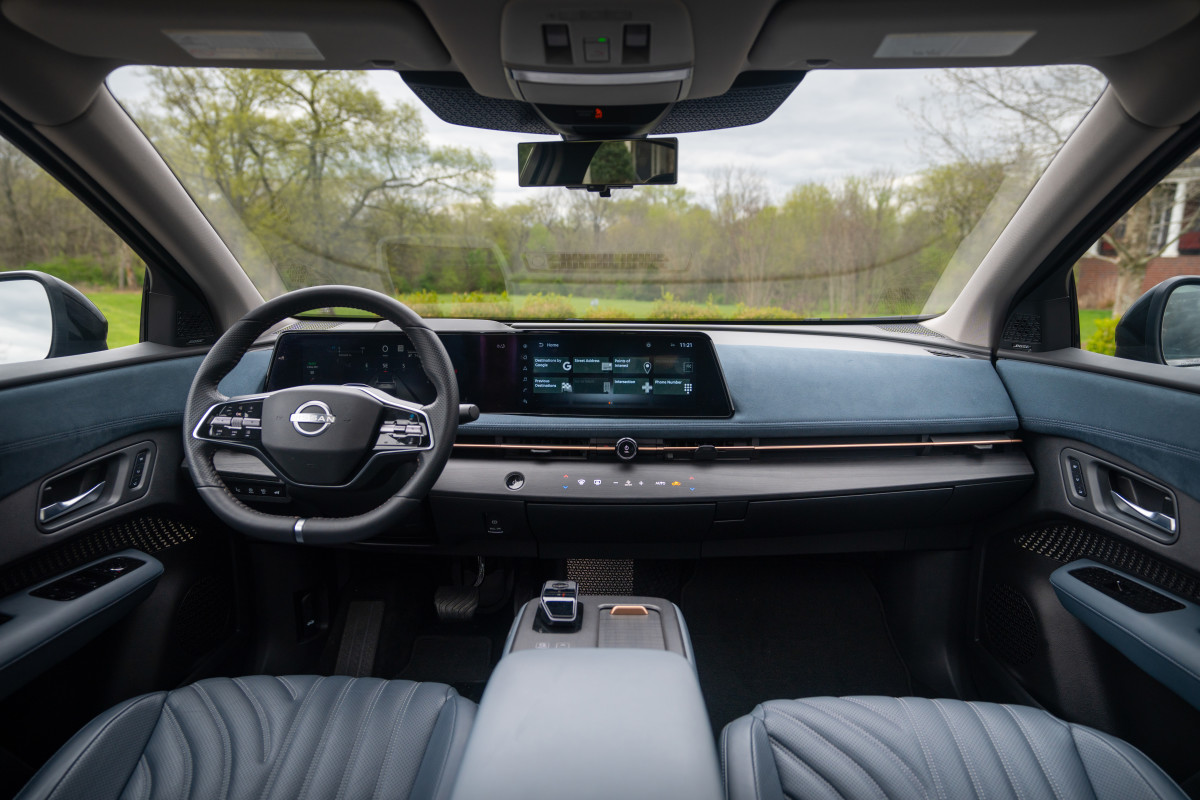Nissan will use a defunct Ford manufacturing unit to fabricate EV batteries
Although not totally carried out, the specter of tariffs looms giant over the auto business. After many years of constructing international provide chains and leaning into abroad manufacturing, automakers are rising involved that tariffs will hit exhausting and quick. Like many, Nissan is seeking to stateside manufacturing and procurement to keep away from tariffs (ought to they arrive) and is now partnering with Ford to assist in one vital method.
The Wall Avenue Journal studies {that a} Ford plant in Kentucky will now be utilized by Nissan to fabricate batteries for its EVs. Although the report doesn’t element Nissan’s manufacturing plans, count on that batteries for the Ariya and Leaf, Nissan’s solely two totally electrical autos, will come from this Kentucky plant.

Nissan
Nissan is utilizing Ford for all the appropriate causes
In 2021, Ford constructed two factories in Kentucky as half of a bigger $7 billion funding in manufacturing and electrification. The 2 crops have been a three way partnership with SK On, a battery maker in Korea that produces EV batteries and energy storage options. The Wall Avenue Journal notes that weaker-than-expected demand for EVs precipitated one of many Kentucky services to sit down dormant. That low demand finally met with excessive manufacturing prices and looming tariffs, making a slowdown in Ford’s battery manufacturing. Nissan’s option to make the most of this defunct manufacturing unit helps it keep away from tariffs on imported EV batteries, which promise to be a considerable further price to EV patrons that they’re unlikely to tolerate.
In Q1, Nissan reported a $4.5 billion loss and canceled a deliberate battery manufacturing unit in Japan. SK On and Nissan have already got a deal in place, too; in March, Nissan mentioned SK On would supply batteries for electrified SUVs in manufacturing at its Canton, Mississippi, plant. It appears affordable that this defunct Ford plant in Kentucky—that was in-built partnership with SK On—will function the manufacturing level for SK On and Nissan’s efforts.
Why this issues for Nissan (and Ford)
Particulars of the deal between SK On and Ford are unknown, however this growth is important for Ford. It both recoups losses by leasing the manufacturing unit to Nissan or avoids any potential breach of contract with SK On because the manufacturing unit sits dormant. If SK On owns and operates the manufacturing unit, however Ford can’t fulfill a manufacturing settlement, Nissan stepping in might ease Ford’s accountability.
Nissan constantly struggles to realize footing within the U.S. market regardless of making respectable SUVs and an important EV SUV. If this cope with SK On retains Ariyas (and Leafs, possibly?) on its tons, EV patrons might give its autos a more in-depth look. Many different automakers, like BMW, are in a holding sample with electrified autos, so the time is likely to be proper for Nissan to realize market share.

Closing ideas
It’s a tenuous time for Nissan. A spiked deal with Honda had many questioning if the model would survive, and as EV demand wanes and tariffs loom on the horizon, Nissan should thread the needle on electrification to realize market share. Partnering with SK On to supply EV batteries domestically is wise, however whether or not it ends in extra gross sales stays to be seen.


